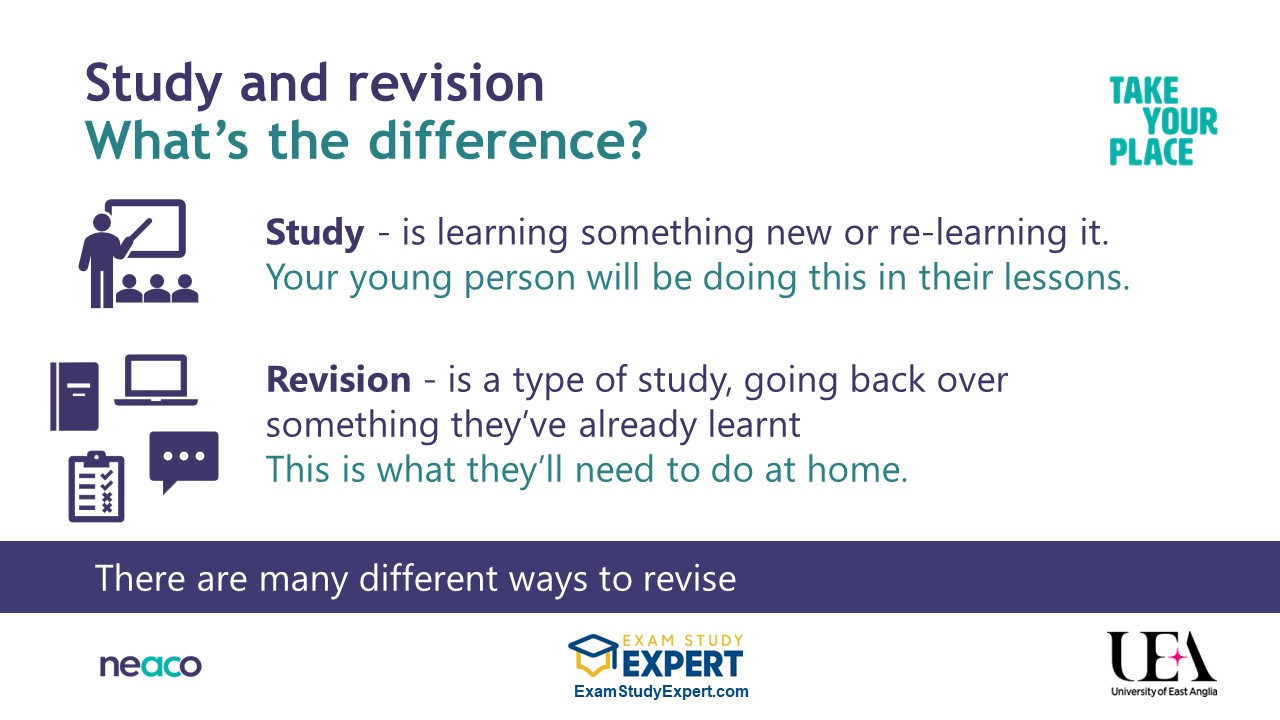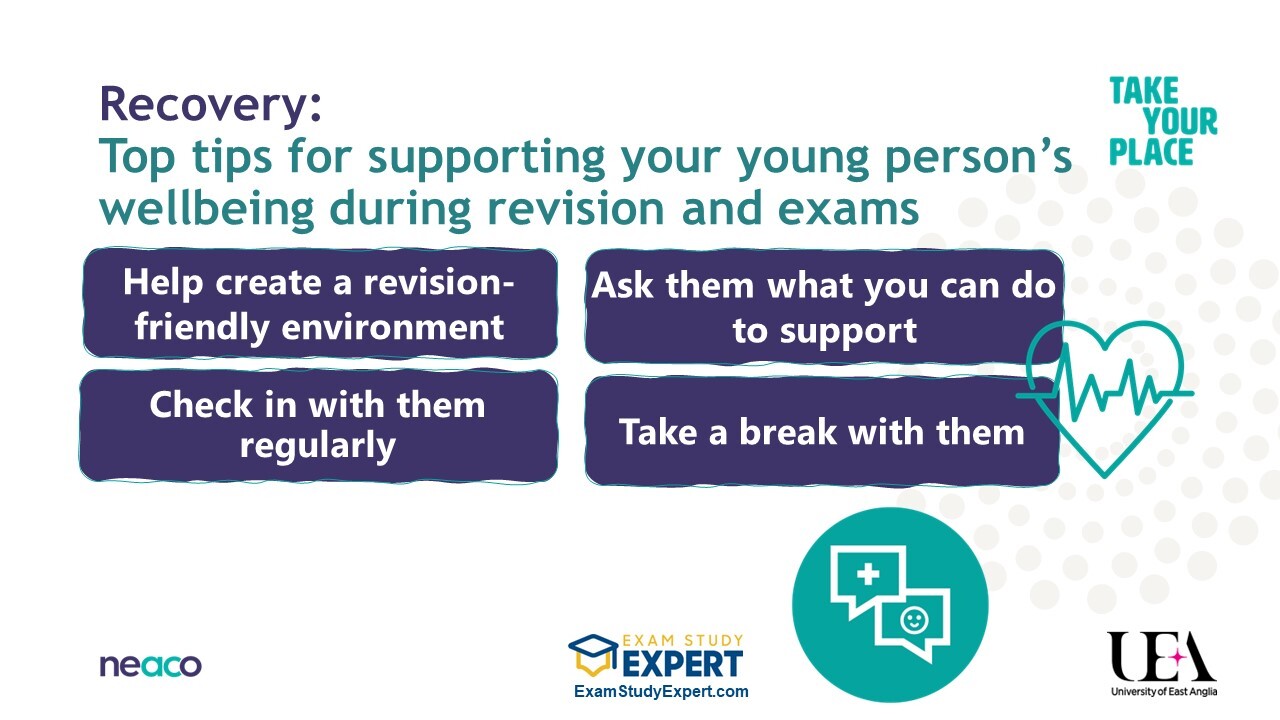Study Skills
We've collated useful information and guidance on how your young person can revise effectively, to help you understand how to support their learning and revision at home.

HOW TO SUPPORT YOUR YOUNG PERSON
As a parent or carer, being able to support them to feel comfortable and confident with their revision will help ease the stress during exam
These revision skills are not just for GCSEs – they’re useful for life! Knowing how to revise effectively is something young people need throughout their education.

Tips and resources for parents and carers
Whether your young person has 10, 20, 30 or 60 minutes to revise, access our FREE Study Skills revision technique resources to find advice and guidance on how you can support them during their revision.
Memory Journaling only takes 10 minutes and can help young people identify what revision topics they need to focus on.
Testing is essential in revision, as it helps bring information to the front of the mind! Find out how you can support your young person with 20-minute stress-free testing techniques.
The Pomodoro method - an effective, 30-minute high intensity workout for the brain! Great for young people who struggle to stay focused.
Creating a revision timetable can feel laborious and daunting – but it doesn’t have to! Spending an hour with your young person to schedule their revision for the week can help it feel flexible and effective. Explore how you can help your young person to schedule their revision, so it feels flexible and effective.
Before getting started with revision, it’s important young people feel comfortable and focused in their environment. Check out how to help create a revision-friendly environment with our Study Space resource.
Recovery time
It’s important that your young person aims to do the best they can in their exams, but also that they don’t get overwhelmed by revision.
Check in with your young person regularly to see how they're feeling about their revision and exams, and ask them what you can do to support.
They might not know what they need in that moment, as they might feel too overwhelmed. But they can always come back to you when they've had a chance to think properly.
The Body Matters website has a useful list of questions to start the conversation with your young person when they're feeling stressed.

FAQS: Supporting your young person with study and revision
Support them to start revising early. During exams students will need to recall information they learnt over their two years of study. The earlier they begin effective revision techniques, the easier it will be for them to remember and recall key information for their exams.
Too little can cause panic. Too much, overwhelm. To ensure they’re not feeling either of these things, encourage them to use the Pomodoro technique. This means revising in timed bursts, with regular breaks. This can support them to revise more often but without feeling like they’re brain is taking on too much.
Yes! Especially if they learn best visually. However, they also need to test themselves on what they’ve learnt, and not just watch revision videos continually. They could take a break after each one and write down everything they remember or create some flashcards for testing. Find out more about how to support your young person with testing here.
Co-create a revision timetable in a format that works for them, such as a physical calendar or post it notes on a wall. They will need to set timings and what they want to achieve for their revision each day. The most effective revision timetables break subjects into topics and allow time to use different revision and testing techniques. Check out our revision timetable resource to find out how to help your young person keep on top of their revision.
Trying to revise a whole subject, such as History, can feel like climbing a mountain. Whereas breaking it down into individual topics, such as WW1, can make it more manageable. This can help them identify which topics they find harder and focus on those. It’s still important they keep their timetable varied, so alternating between subjects or topics they find easier can keep them motivated.
The Pomodoro technique allows students to revise in short, sharp bursts. They can set the time for each revision burst, and then reward themselves with regular breaks. It helps support focused revision. It’s still best to keep distractions – such as phones – out of the way!